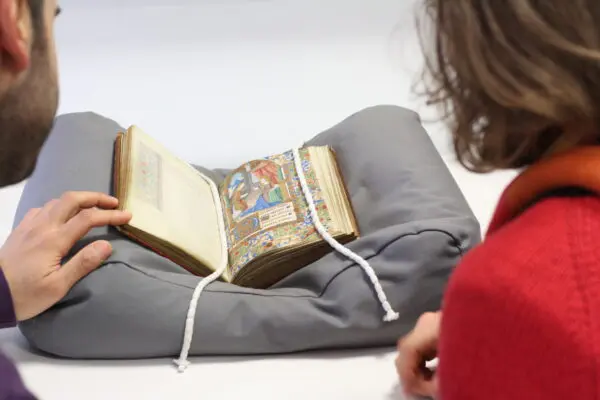
Utrecht, Netherlands
Ecumenical Catholicity: The Old Catholic Witness
When:
12 July - 17 July 2026
Credits:
2 EC
Read more
Religious Studies
When:
01 July - 05 July 2024
School:
Institution:
University of Cambridge
City:
Country:
Language:
English
Credits:
0 EC
Fee:
1495 GBP

A joint academic summer school for advocates, policymakers, practitioners and faith leaders, hosted at the University of Cambridge’s Faculty of Divinity and with optional residential accommodation at Wolfson College, Cambridge.
This is a collaborative learning experience drawing on scholarship and practice. Together we will identify, analyse and interrogate tools and resources for religiously-informed climate advocacy and action.
In partnership between academics and practitioners, we will explore:
Eco-theologies
How human, nature and divine are connected in different beliefs—and consequences of these connections. Here we will consider perspectives from a range of religions and systems of belief, including traditions with worldwide influence and localised practices.
Vulnerability and resilience
How religious communities are coping with environmental challenges and risks. Researchers will share case studies from communities already experiencing harsh conditions as a result of climate change, in Africa and the Middle East. We will also consider how European actors are seeking to prepare for foreseeable futures.
Social movement and adaptation
How faith may (or may not) drive eco-friendly behaviour. Bringing together insights from political psychology with research into activist movements, we will think about the most promising and inviting paths for action and how these speak to religious imaginations (and vice versa).
Economic & ecological systems
How green and faith-based economics interact with sustainability. Mining scriptures and religious teachings in participatory dialogue, we will consider when and how faith-based perspectives have offered and offer different approaches to economics, and how these may speak to 21st-century climates. We aim to hear about climate justice and other transformational endeavours.
The Religion and Climate Futures Academic Summer School foregrounds the experience, imagination & activity of faith communities in climate-related discourses and processes. In addition to opening up new knowledge and theoretical insights, the curriculum is designed to incorporate varied approaches that may help participants create similar conversations and engagement after the Summer School concludes.
There will be some conventional learning and teaching (lectures, seminars). There will also be storytelling, interactive sessions, and plentiful opportunities for conversation. Additionally, we will arrange one-to-one and peer-to-peer mentoring to support project-based work, ahead of the final day’s presentations.
Co-convened by: Religion and Global Society research unit, London School of Economics & Political Science & Cambridge Interfaith Programme, University of Cambridge The full list of contributing speakers and tutors will be published in April.
The curriculum will be directly relevant to:
- climate professionals seeking to work or engage with religious stakeholders;
- religious leaders and activists keen to identify fruitful initiatives and opportunities; and
- students and recent graduates wanting to deepen their academic understanding of the intersection between religion and climate change.
By the end of the Summer School, participants will be equipped to:
- Critically evaluate how religious imaginations and the activities of faith communities are shaping and shaped by environmental politics;
- Select and apply tools and strategies to engage religious literacies and enhance attention to religion in climate-oriented discourse;
- Devise realistic responses to challenges faced in different professional, academic and personal contexts.
Fee
1495 GBP, Standard fee including 5 nights’ accommodation at Wolfson College, Cambridge. (There is an early bird discount for those applying by 28 April.)
Fee
975 GBP, Standard non-resident fee, i.e. course only. (There is an early bird discount available to those applying by 28 April.)
When:
01 July - 05 July 2024
School:
Institution:
University of Cambridge
Language:
English
Credits:
0 EC

Utrecht, Netherlands
When:
12 July - 17 July 2026
Credits:
2 EC
Read more

Utrecht, Netherlands
When:
05 July - 10 July 2026
Credits:
2 EC
Read more

Bristol, United Kingdom
When:
14 June - 04 July 2026
Credits:
5 EC
Read more